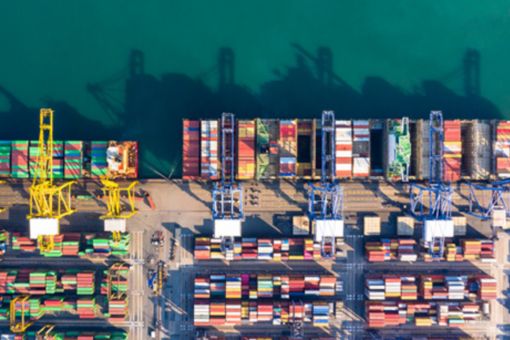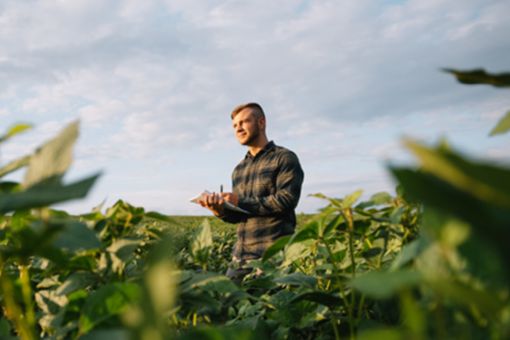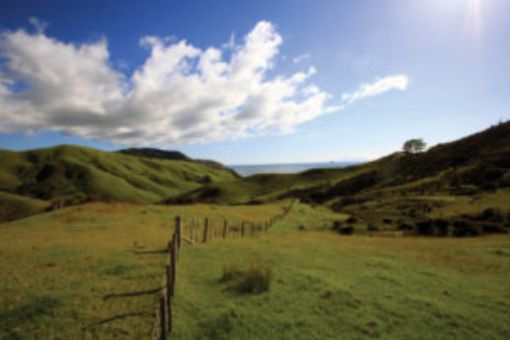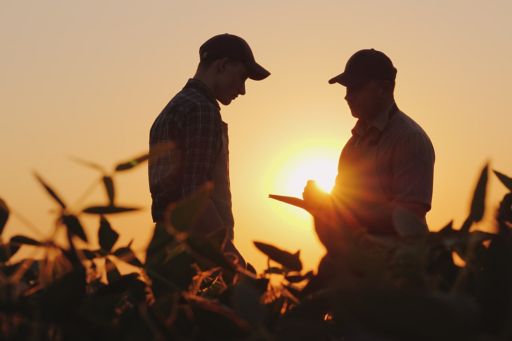Week in Review
This week in New Zealand an online grocery start-up raises $2.5m in seed funding to support its ambition of becoming a future competitor of scale in the country’s grocery market. We also see the release of several reports and studies into the ecological, nutritional and animal welfare benefits of regenerative agriculture farming systems.
Internationally UN’s Climate change conference COP 26 dominates headlines with various commitments, agreements and collaborations stated across the world’s nations and including our own as global leaders discuss the challenge of climate change.
Article of the Week
This week KPMG’s Ian Proudfoot reflects on the Global Methane Pledge and our unexpected sign-up. Ian explains what this may mean for New Zealand and what steps must we take to ensure the longevity of our food and fibre sector after this new announcement.
Read the full article here.
Previous issues
To read previous editions of Field Notes please click here.
Spotlight Stories
Food Retail Spotlight:

Supie bags $2.5m seed funding, series A slated for 2022 [4th November, Food Ticker]
After active involvement in the recent commerce commission hearings that reviewed New Zealand’s supermarket ‘duopoly’, Sarah Balle and her start-up Supie have raised $2.5m of seed funding. Supie is an online supermarket startup currently with 6000 members in Auckland and 4000 products. The new funding is to support marketing and innovation before an anticipated further $10m+ raise in 2022.
International Spotlight

World food prices hit new 10-year high in October -FAO [4th November, Reuters]
Another increase in global food prices has resulted in a further 10-year high for the end of October 2021, up 31.3% compared with October 2020. Cereal and vegetable oil prices are up 3.2% and 9.6% respectively while sugar prices retracted slightly by 1.8%. The global cereal production is expected to reach record levels for the year but will still be below projected demand.
This Week's Headlines

'Wonder crop' offers iwi and hapū potential for sustainable aquaculture businesses [6th November, Te Ao Māori News]
A new report into the seaweed sector of New Zealand presents some of the potential of this emerging sector and the cultural importance to Māori. Six seaweed species were identified in the report as having potential for commercial development and unlocking the opportunity of this sector is expected to offer environmental, cultural, and economic benefits to the country.

No evidence of Covid transmission via food, packaging – report [9th November, Foodticker]
A report recently released by The Institute of Environmental Science and Research and The New Zealand Food Safety Science and Research Centre has highlighted that coronaviruses could not grow on food and has little to no risk of transmission via food packaging. The global study demonstrated no evidence of Covid-19 transmission on packaging and no disinfection recommendations are required.

Study reveals pasture variety benefits [9th November, Farmers Weekly]
Silver Fern Farms have been involved in a two-year research programme with Lincoln University in New Zealand and Duke University in the US to identify the benefits to eating quality and human nutrition that may arise from livestock grazed on regenerative pasture mixes. The research indicates that beneficial bioactive compounds in these pastures with properties such as anti-inflammation, anti-cancer and improved heart health are in high concentrations in the meat of animals that feed from them.
Top stories
Organic sector aims to contribute $4.7 billion to GDP by 2030 [05 November, Stuff NZ]
Last Friday 5th November, the Organic sector group Organics Aotearoa New Zealand (OANZ) released the sector strategy ‘Taking Action for a Better New Zealand’. The strategy funded by Ministry for Primary Industries includes a goal of increasing the contribution of the sector to GDP to reach NZD$4.7B by 2030. The industry grew from $600m in 2017 to $723m in 2020 at approximately 6.4% per year, just behind the global market growth of 9%.
Beef exports top 100,000 tonnes in third quarter for first time [05 November, Stuff NZ]
After reaching $642m of exports in September 2021, the red meat sector has exceeded 100,000 tonnes and reached a $2.2B export value for the third quarter of the year. There has been strong growth in the industry’s key markets including United States, China and Japan at 35%, 57% and 61% respectively.
New Fonterra partnership to boost probiotic products [05 November, Farmers Weekly]
Fonterra Co-operative Group has announced a partnership with Vitakey, a biotechnology company based at Massachusetts Institute of Technology (MIT) in the US. The new relationship is expected to provide benefits of improved customer reach, shelf-life and efficiency through combining the intellectual property and networks of the two companies.
Local Focus: Boom to Bust? Manuka Honey producers 'can't sell' some of their stock [05 November, NZ Herald]
Despite still accessing premium prices and receiving strong international recognition, some manuka honey producers in New Zealand are finding it challenging to remain profitable due to the significant number of new hives introduced around plantations. Experienced third-generation beekeeper John berry stated that there are 500,000 too many hives across the country and provided the example of a spot where he used to host 16 hives and has recently had 180 additional hives added by a corporate organisation just ‘two paddocks away”.
Regenerative farming likely to increase native biodiversity on NZ farms - report [05 November, NZ Herald]
Three reports have been released after funding from the Our Land and Water National Science challenge detailing evaluation and impact of regenerative farming on different parts of farm-system and ecosystems. One of the key findings from the report ‘Native Biodiversity conservation on regenerative farms’ outlines the positive impact regenerative farming can have on the native biodiversity on farms across New Zealand, with the study completed by University of Canterbury.
New Zealand wine in high demand despite labour and supply chain challenges | Stuff.co.nz [8 November, Stuff NZ]
New Zealand Winegrowers chief executive Philip Gregan reports that international demand for wine is high, reflected in its price per litre. New Zealand wine exports hit $600 million in the September quarter, up 9% on the same period last year, with no sign of slowing. However, the ongoing effects of Covid-19, along with rising cost of production are being felt. “The recent decision to allow quarantine-free travel for Registered Seasonal Employers scheme workers is positive” Gregan said.
Tag: Viticulture, Trade & Exports
‘New’ organisms residency edges closer (farmersweekly.co.nz) [8 November, Farmers Weekly]
Earlier this year, the Environmental Protection Authority (EPA) sought feedback on which new organisms should no longer hold regulatory status as “new” because they are effectively resident. Of a long list of 51 organisms, an insect, three plants and a common bacterium have been shortlisted. EPA New Organisms group general manager Dr Chris Hill says the shortlisted candidates have been carefully screened. Hill says, “This process is about making it easier for scientists wanting to conduct research on these organisms and removing the unnecessary financial barriers for businesses wanting to make use of them.”
The surprise entries in NZ's list of top climate polluters | Stuff.co.nz [9 November, Stuff NZ]
The Environmental Protection Authority (EPA) has recently released a list of New Zealand’s biggest emitters. This is the first time the EPA has published polluter data by name, under a new requirement introduced by last year’s Emissions Trading Scheme reforms. The EPA’s breakdown by sector shows nitrogen fertilisers used for farming and horticulture contributed 2.7 million tons of greenhouse gas to the atmosphere in 2020, while 15 million and 16 million tons respectively were sheeted home to the meat and dairy industries at the point of slaughter, or where milk was processed.
As strike enters its sixth week, Kellogg wrestles with cereal supply | Food Dive [8 November, Farmers Weekly]
Kellogg CEO Steve Cahillane told Bloomberg last week that the company is importing cereal from outside the U.S. — saying it will "leverage the totality of its global network" across Canada, Mexico, the U.K. and Australia — in order to maintain supply as a strike of 1,400 workers at its ready-to-eat cereal plants in four states enters its sixth week. In Kellogg’s third-quarter earnings call, Cahillane said that the company predicts more difficulties ahead in the fourth quarter due to the strike, which has compounded existing supply chain issues.
Wool merger secures yes vote [8th November, Farmers weekly]
Shareholders from Wools of New Zealand (WNZ) and Primary Wool Co-operative (PWC) voted in a proposed merger to create a new entity ‘Wools of New Zealand LP’. Almost 100% of shareholders across the two organisations voted in support of the merger with PWC chair Richard Young stating “Ultimately, the development of an integrated supply chain aims to improve returns for our growers.”
Westland to spread overseas butter footprint after $40m investment [11th November, Foodticker]
A $40 million upgrade to Westland Milk Products’ factory in Hokitika has been invested to enable a greater proportion of the company’s 42,000 tonnes of butter to be processed as high-margin premium grass-fed butter, rather than bulk commodity butter. The strategic investment is to plan for a future with flatter milk volumes and seek further international opportunities such as the UK with its recent proposed free trade agreement and the US, China and Russian markets driving the world butter market to a forecast $US59t by 2025.
Higher vegetable price don't mean more money for farmers [10th November, Stuff NZ]
As vegetable prices increase 19% in the past 12 months, these higher prices are not necessarily translating to more cash in farmers pockets. Producers shared that labour costs and production costs have increased 50% and 40% respectively since 2017 with increases in compliance costs, environmental management, input costs and wages all putting pressure on margins.
Inghams drops dairy from 'plant-based' nuggets after criticism [9th November, Stuff NZ]
‘Let’s Eat’ have been criticized for labelling their pea protein ‘chicken-nuggets’ as plant based after consumers noticed the products still contain milk. After online backlash, the brand, owned and operated by Inghams Group New Zealand has promised to relaunch the product without milk in 2022.
Building bridges? EU, US collaboration on agriculture sounds alarm bells in Europe [5th November, Food Navigator]
A transatlantic collaboration platform on agriculture has been announced between the European Union and USA with is aimed at improving global sustainability. Though there is optimism around the opportunities through this collaboration particularly in relation to science and innovation, some of the challenges include the different approaches to GMOS’ gene editing and use of hormones and growth promoters.
JBS inks feed additive deal to cut cow methane emissions globally [8th November, Food Navigator]
A feed additive called Bovaer developed by DSM in the Netherlands is reported to reduce methane emissions by up to 90% when added to an animal’s diet at the rate of a quarter of a teaspoon per day. Producers of the enzyme inhibiting product have entered a partnership with the world’s second largest food company JBS, who intend to use the product as a key tool in their journey to becoming carbon neutral by 2040.
Higher vegetable price don't mean more money for farmers [10th November, Stuff NZ]
As vegetable prices increase 19% in the past 12 months, these higher prices are not necessarily translating to more cash in farmers pockets. Producers shared that labour costs and production costs have increased 50% and 40% respectively since 2017 with increases in compliance costs, environmental management, input costs and wages all putting pressure on margins.
Get in touch
| Audit – Auckland Ian Proudfoot 09 367 5882 iproudfoot@kpmg.co.nz |
Management Consulting – Wellington Justine Fitzmaurice 04 816 4845 jfitzmaurice@kpmg.co.nz |
Agri-Food – Auckland Jack Keeys 09 363 3502 jkeeys@kpmg.co.nz |
Private Enterprise – Hamilton Hamish McDonald 07 858 6519 hamishmcdonald@kpmg.co.nz |
| Agri-Food – Auckland Andrew Watene 09 367 5969 awatene@kpmg.co.nz |
Consultant – South Island Genevieve Steven 03 307 0761 gsteven@kpmg.co.nz |
Farm Enterprise – South Island |
Field Notes Administrator |





